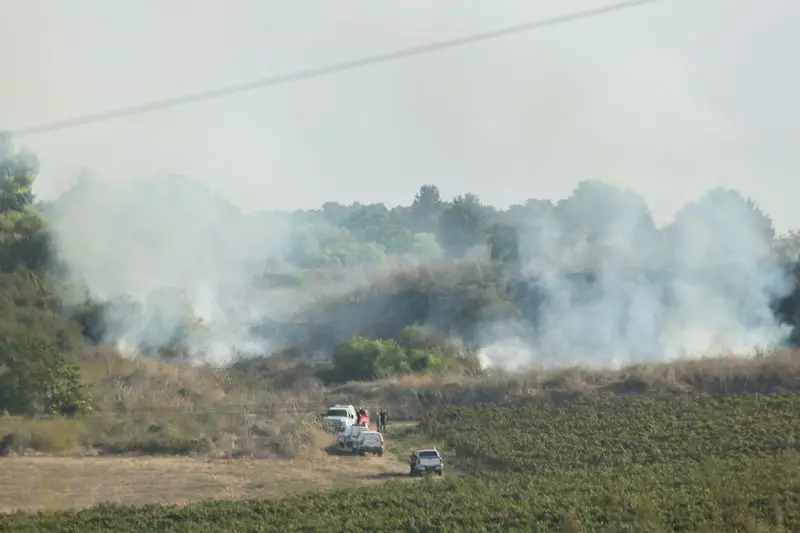In recent developments, the Houthis, a Yemeni militant group closely aligned with Iran, have demonstrated a striking capacity to project power beyond their traditional theater of conflict. This escalation highlights not just their military advancements but also the shifting dynamics within the Middle East. The launch of a hypersonic missile that successfully reached central Israel underscores a growing threat that Israel can no longer afford to ignore. The missile, which covered a staggering distance of approximately 2,040 kilometers (about 1,270 miles) in just 11.5 minutes, indicates a marked improvement in the Houthis’ missile technology and their operational reach.
When the missile penetrated Israeli airspace, it raised immediate concerns about national security in Israel. Although the missile ultimately fragmented in the atmosphere, resulting in no casualties, the psychological impact on the population of Israel and the military posture of its government is undeniable. The incident serves as a wake-up call, prompting a serious reassessment of Israel’s defense mechanisms against such an advanced and unpredictable foe.
Israeli Prime Minister Benjamin Netanyahu’s response came with a warning: the Houthis would pay a “heavy price” for their attacks. This statement, made during a cabinet meeting, speaks volumes about Israel’s determination to retaliate against threats to its sovereignty. By referencing a past Israeli airstrike on Houthi positions near the port of Hodeidah, Netanyahu framed the potential for severe repercussions for further aggression.
The cycle of violence inherently perpetuates itself within the context of the Israeli-Palestinian conflict and broader regional tensions. As the Houthis have increasingly directed their missile fire towards Israel, they justify their actions as solidarity with the Palestinians. This narrative complicates the situation further, as new alliances may form in a bid for regional influence, particularly in the wake of the ongoing Gaza conflict ignited by Palestinian militant groups like Hamas.
With incidents like this missile strike becoming more commonplace, the implications for regional stability are significant. The involved parties—Israel, the Houthis, and by extension, Iran—engage in a precarious dance of escalation and deterrence. The Houthis’ increased capability to strike Israel can potentially embolden other militant groups in the region, contributing to a chaotic security landscape.
This altered power dynamic is characterized by new possibilities for conflict escalation. The Houthi spokesperson’s claims regarding “20 missiles” that were reportedly undeterred by interception efforts paint a concerning picture of the effectiveness of Israel’s missile defense systems. If the Houthis continue to refine their targeting and technology, they could become a much more potent threat than just a proxy engaged in localized conflict.
Moreover, the aftermath of military confrontations could precipitate humanitarian crises in Yemen while simultaneously stoking further resentment against Israel. This cycle of violence could entrench the Houthis’ resolve and prompt them to consider even bolder strikes, knowing that their operations can range widely into enemy territory.
The recent events in which Houthi missiles reached central Israel serve as a warning of the evolving security challenges that Israel faces and signify a worrying shift in regional power balances. The Houthi ability to display reaching military capabilities challenges the narrative that Israel remains invulnerable to foreign missile threats. Future confrontations are likely as both sides brace for inevitable retaliatory actions fueled by public sentiment and political expectations.
As both Israel and the Houthis navigate this fraught landscape, their mutual attrition could spiral into an escalating cycle of retaliation. The international community should closely monitor these developments, as the ramifications extend beyond the borders of Israel and Yemen, potentially impacting the larger Middle Eastern geopolitical framework. The continuing evolution of Houthi capabilities presents a multifaceted threat that warrants strategic considerations and a collective international approach to mitigate the risks of wider conflict.

